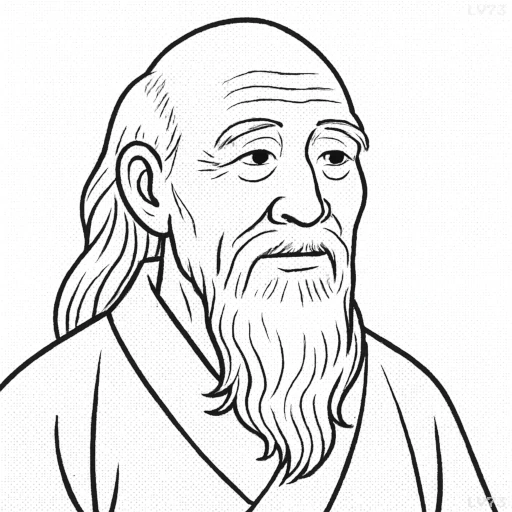“The more laws and order are made prominent, the more thieves and robbers there will be.”

- 571 BC? – 470 BC?
- Born in China
- Philosopher
table of contents
Quote
“The more laws and order are made prominent, the more thieves and robbers there will be.”
Explanation
This quote from Laozi speaks to the Daoist principle of non-interference and the consequences of over-regulation. Laozi suggests that the more we impose laws, rules, and rigid structures upon society, the more we create conditions that lead to rebellion or resistance. When laws are excessively emphasized or become too controlling, they often stir up conflict, as people resist the limitations imposed on their freedom. Rather than creating a peaceful and orderly society, too many laws can inadvertently foster an environment of disobedience or even criminal behavior. This can happen because strict control or over-regulation often leads to frustration, rebellion, and a lack of trust between the governed and those in power.
Laozi’s message reflects his philosophy of minimalism in governance—where the best leaders do not micromanage or create an over-complicated system of rules. Instead, they trust in the natural order and allow people to act according to their own understanding of what is right. In modern contexts, this idea is often applied to government policy, corporate structures, and even personal relationships, where the emphasis is on freedom, trust, and self-regulation. A balance is needed—too much external control can lead to the opposite of the desired effect.
This principle also ties into the idea of moral development. When individuals are trusted to govern themselves based on their innate sense of right and wrong, rather than through external mandates, they are more likely to make choices that contribute to the greater good. Laozi teaches that wisdom and ethical behavior come from inner awareness rather than through an abundance of imposed rules. This idea is still highly relevant today, suggesting that overregulation can sometimes undermine the autonomy and natural morality that individuals can possess when given the freedom to act from their own conscience.
Would you like to share your impressions or related stories about this quote in the comments section?



